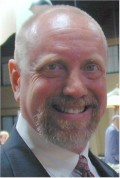What is Disease?
For doctors, disease identifies why people are sick and suggests a course of action. For researchers, disease identifies an area to be studied in the hopes of finding a cure. For patients, disease puts a name to an affliction and answers the question: What’s the matter with me? For pharmaceutical companies disease is a business model. It offers an opportunity to develop and market drugs that make a profit.
The drug industry is among the most profitable in the world and their knack for generating money makes oil companies look like lemonade stands. Drug companies owe their prodigious success to doing one thing exceptionally well - marketing. In the drug industry, devising treatments for normal conditions of life (like depression, menopause, anxiety, obesity) is known as “developing new disease markets” or “branding a condition.”
The first antidepressants were promoted in both the medical and financial worlds laying the groundwork for depression to be recognized as a disease. To date the pharmaceutical industry has spent millions of dollars developing dozens of drugs aimed at depression. By lobbying the FDA to recognize depression as a disease and marketing it they have dramatically increased the demand for the drugs. As a result depression has become one of the greatest “diseases” of our age.
You can’t see depression through a microscope, or detect it through a single blood test. Physicians have been so hasty to embrace it as a disease, for their own reasons, they have overlooked evidence that the science behind the diagnosis is flimsy and conjectural.
With backing from the American Psychiatric Association (which in financially funded by the drug companies) and the Federal Government (which is heavily influenced by the largest lobbying organization in the world, PHARMA) it is tempting to view depression as a fact of medicine, rather than as a fiction, wholly devised and disseminated by the pharmaceutical industry.
Depression as a disease is compelling to the consumer as well. Turning depression into a disease puts it in the province of science. With science, we’re not confined to figuring out our issues and dealing with them, instead we get drugs. But in reality, depression as a disease is just bad medicine, the product of an overeager illness industry.
Jeffrey Wilson is a survivor of 23 years of psychiatric drug treatment, a former executive in the pharmaceutical industry and the author of Irrational Medicine: The Antidepressant Crisis and How To Avoid Unnecessary Behavioral Drugs. He is a recognized expert in overcoming depression and is passionate about each person's ability to recover and create a life full of joy and meaning. www.irrationalmedicine.com

